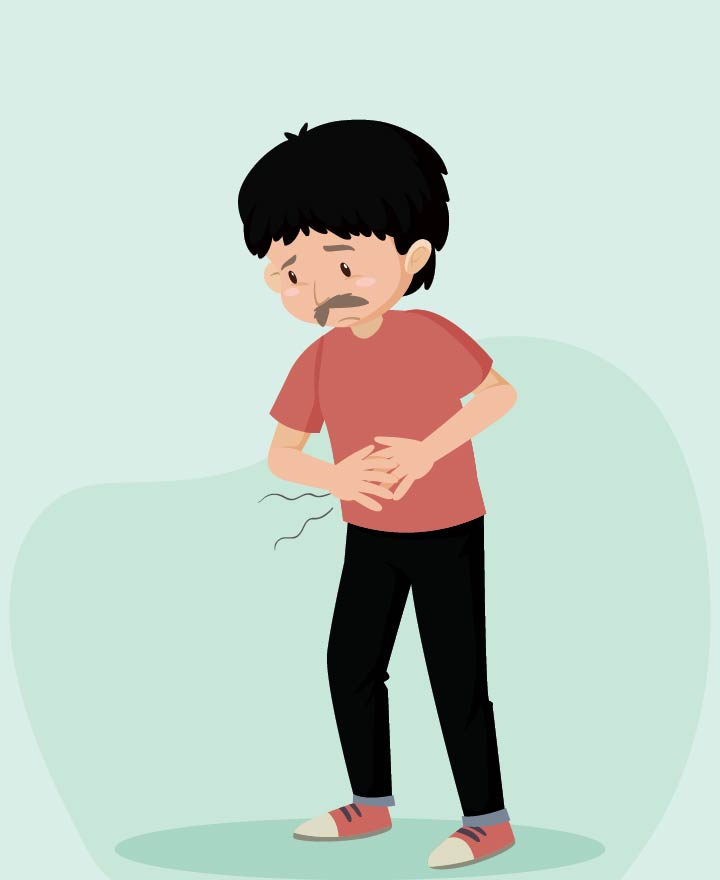

List of Gastrointestinal Diseases in the Elderly
Older adults are more prone to gastrointestinal (GI) disorders. However, a person’s age is not directly related to GI issues. As people age, they undergo various physiological, metabolic, and neurological changes. All of these can weaken their immune system, which can lead to issues in their gastrointestinal tract. In most cases, these issues can be resolved with certain lifestyle modification. Some GI disorders can become life-threatening if not detected in the early stages. Read on to understand the list of gastrointestinal diseases that can affect you as you age.
Common Gastrointestinal Diseases in Older Adults
Gastrointestinal diseases can be classified into following types:
• Upper gastrointestinal tract diseases
• Small bowel diseases
• Lower gastrointestinal tract diseases
A) Upper Gastrointestinal Tract Diseases
This includes:
• Dysphagia
This condition affects the swallowing capacity of older adults. Certain age-related ailments that affect the structure and functionality of the swallowing muscles can increase risk of dysphagia.
• Functional Dyspepsia
The two warning signs of this condition are- a feeling of fullness immediately after meals (postprandial distress syndrome) and frequent episodes of epigastric pain and burning sensation (epigastric distress syndrome).
• GERD
This is one of the common gastrointestinal disorders in older adults. As people age, the symptoms of GERD may not be that visible, but the impact of the disease could be severe. In the initial stages, doctors recommend dietary and behavioural changes to monitor the symptoms in older adults.
• Chronic Atrophic Gastritis (CAG)
Although old age is not the only risk factor for CAG, this condition is most commonly seen in older adults due to other health complications. When left untreated for a long time, this can damage the absorption capacity of intestines and cause gastric carcinoma.
• Gastric Cancer
Usually occurring in people over 70, this is caused by the formation of cancerous tumors in upper part of the stomach.
B) Small Bowel Diseases
The common small bowel diseases among older adults includes:
• Celiac Disease
This autoimmune disorder is associated with an increased gluten intake. Persistent diarrhoea and unexplained weight loss are the main symptoms that seniors exhibit here.
• Mesenteric Ischemia
This is a rare type of GI disorder that affects older adults. It is caused by an insufficient blood supply to the intestinal organs, thereby disrupting metabolic functions.
• Small Intestinal Bacterial Overgrowth
Old age is associated with reduced gastric secretions, decreased gut motility, increased bowel issues, and more. Hence, small intestinal bacterial overgrowth is quite common in older adults.
C) Lower Gastrointestinal Tract Diseases
This includes:
• Diverticular Disease
This is a common colon ailment that affects people above 70 years of age. In this condition, connective tissues in the colon wall gets damaged, thereby hampering its overall functionality.
• Irritable Bowel Syndrome (IBS)
IBS is the most common GI disease in seniors. Irregular bowel movements and abdominal pain or discomfort are the two most obvious warning signs of this condition.
• Gut Infections
As the lining of GI tract gets impacted, the mucosal membranes start to lose their defensive capabilities. Hence, gut infections are common in older adults.
• Constipation
Difficulty while passing stools, hard stools, incomplete excretion, etc., are some common symptoms experienced by older adults who have been living with chronic constipation.
• Faecal Incontinence
Some complications related to old age (dementia, lack of mobility, cognitive disorders, etc.) can lead to faecal incontinence. This is a condition where a person passes solid or liquid stools involuntarily.
Conclusion
You become more prone to infections and ailments in your old age than in your youth. This is because your immune system starts to weaken, and your cognitive functions begin to decline gradually. Gastrointestinal disorders are one of the many health complications you may experience in your old age. Most of these GI disorders are not life-threatening, if detected and treated early.
One of the important components of our overall wellness is also being financially secured. Healthcare emergencies can happen any time, but a good health insurance policy can protect you from such uncertain situations. To know more about Wellness and other health related tips, visit the wellness corner.
Disclaimer: This blog provides general information and discussions about health and related subjects. The information and other content provided in this blog, website or any linked materials are not intended and should not be considered or used as a substitute for medical advice, diagnosis or treatment. Kindly contact your doctor before starting a new medicine or health regime.
Related Articles
Top Foods to Boost Digestive Health and Improve Gut Function
Easy Home Remedies for an Upset Stomach
The Most Common Digestive Disorders Diseases
Understanding Abdominal Pain: Appendicitis vs Gas Pain
Published on June 18, 2025















 Health Insurance
Health Insurance  Travel Insurance
Travel Insurance  Car Insurance
Car Insurance  Cyber Insurance
Cyber Insurance  Critical Illness Insurance
Critical Illness Insurance
 Pet Insurance
Pet Insurance
 Bike/Two Wheeler Insurance
Bike/Two Wheeler Insurance  Home Insurance
Home Insurance  Third Party Vehicle Ins.
Third Party Vehicle Ins.  Tractor Insurance
Tractor Insurance  Goods Carrying Vehicle Ins.
Goods Carrying Vehicle Ins.  Passenger Carrying Vehicle Ins.
Passenger Carrying Vehicle Ins.  Compulsory Personal Accident Insurance
Compulsory Personal Accident Insurance  Travel Insurance
Travel Insurance  Rural
Rural